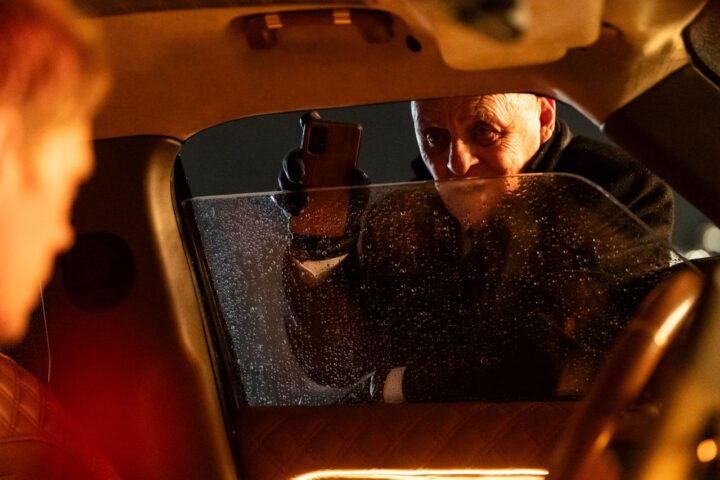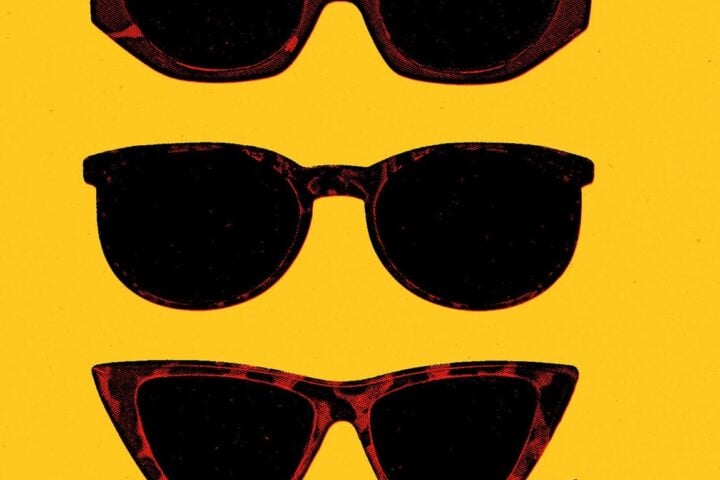![]() Detective thrillers often concern contests of male ego, involving investigators who confront physically superior and equally brilliant psychopaths. Often lost among such face-offs are considerations of the lives that are destroyed over the course of the narratives, as these thrillers exist to evoke and satisfy our own fears and resentments. By contrast, Jonathan Demme’s The Silence of the Lambs, adapted from Thomas Harris’s 1988 novel, is grounded in the psyche of a ferocious yet unproven female protagonist, whose thoughtful fragility intensifies the film’s violence, invigorating it with a sense of dread and violation. The film is a strange and still novel mixture of coming-of-age character study, murder mystery, and Grand Guignol horror spectacle.
Detective thrillers often concern contests of male ego, involving investigators who confront physically superior and equally brilliant psychopaths. Often lost among such face-offs are considerations of the lives that are destroyed over the course of the narratives, as these thrillers exist to evoke and satisfy our own fears and resentments. By contrast, Jonathan Demme’s The Silence of the Lambs, adapted from Thomas Harris’s 1988 novel, is grounded in the psyche of a ferocious yet unproven female protagonist, whose thoughtful fragility intensifies the film’s violence, invigorating it with a sense of dread and violation. The film is a strange and still novel mixture of coming-of-age character study, murder mystery, and Grand Guignol horror spectacle.
The narrative concerns the F.B.I.’s quest to find a killer of young, plus-sized women who’re found floating in rivers, partially skinned. Demme rhymes the violence inflicted on the victims with the aggression that F.B.I. trainee Clarice Starling (Jodie Foster) weathers in the corridors of government offices and other realms that she investigates while searching for the killer. Throughout the film, Demme contrasts the diminutive Clarice with her tall and burly male colleagues, revealing her existence to be casually rife with battles for respect that many men take for granted as a birthright. Scenes are often shot from Clarice’s point of view, framing men’s faces so that they’re talking directly to the camera, forcing the audience to confront Clarice’s sense of being under siege as she’s sexually harassed, brushed aside, or endlessly condescended to.
In the film’s most heartbreaking scene, Clarice is sent by Jack Crawford (Scott Glenn) of the F.B.I.’s Behavioral Science Unit to interview a serial killer and disgraced psychiatrist, Hannibal Lecter (Anthony Hopkins), at the Baltimore State Hospital for the Criminally Insane. After a promising tête-à-tête, Hannibal turns on Clarice, homing in on her class insecurity, saying that she resembles a “rube” with her cheap clothes and a West Virginian accent that she tries to obscure. Clarice weathers this attack and turns the tables on Hannibal, igniting a relationship that blurs lines between subject and investigator, mentor and pupil, and seduced and seducer. Hannibal’s cruelty explodes the masculine resentment that dogs Clarice everywhere, offering her a catharsis by uniting her classist self-loathing with her struggles with institutionalized sexism. Hannibal recognizes Clarice’s desperate urge to transcend herself, a yearning that runs under the film like an electric current.
Foster allows us to feel the pain of Hannibal’s words, as well as Clarice’s unresolved exaltation at hearing him voice her deepest fears. When Hannibal calls her a rube, Clarice appears to wilt and bloom somehow at once without hardly moving. Such a mysterious sense of physicality runs through Foster’s extraordinary performance, intensifying the film’s horror. As terrifying as the sequences with Hannibal and Buffalo Bill (Ted Levine) are, The Silence of the Lambs is ultimately centered on an anxiety of exposure. People fear that their feelings of inferiority will be unearthed by friends, family, and strangers alike, and Hannibal’s supernatural discernment of such fear distinguishes him from more forgettable movie villains. His skill explains our attachment to him despite our better moral judgment. We seek this master aesthete’s approval, as he’s the abusive lover or boss we wish to please in spite of ourselves.
The film is driven by Clarice’s quest to tame her self-loathing, which parallels Buffalo Bill’s deranged efforts to do the same. Buffalo Bill kidnaps women, imprisons them in a pit at the bottom of his home’s labyrinthine basement, and skins them so as to fashion himself a second skin, fostering a transformation that he likens to the emergence of a moth from a cocoon. A humanist to his core, Demme can’t even entirely vilify Buffalo Bill, who embodies a perverted masculinity that manifests itself more insidiously in Clarice’s relationships with Jack and Hannibal, parallel father figures and figurative lovers given to exploitation and manipulation.
In a famous as well as infamous scene from The Silence of the Lambs, Buffalo Bill primps in front of a mirror and dances to Q Lazzarus’s “Goodbye Horses” as he tucks his penis between his legs so as to envision himself as a woman. Demme and Levine allow Buffalo Bill to be pitiful, poignant, and majestic, resisting the cartoonish inhumanity that often governs films about serial killers. Yet Bill’s intended victim, Catherine (Brooke Smith), also screams in the background of this sequence, grounding it the reality of his monstrousness.
Demme wasn’t a horror filmmaker, but a warm portraitist who was occasionally drawn to operatically lurid material, and his seeming misplacement in The Silence of the Lambs complements Clarice and Buffalo Bill’s alienation. Demme emphasizes unusual textures, enlivening even the generic qualities of the film’s narrative. Like many of Demme’s films, The Silence of the Lambs is a veritable sea of faces, a casual celebration of miniature communities, which, in this context, bolsters the notion of the serial killer as a betrayer of social trust. And when Clarice delves into the hallway of madness that initially imprisons Hannibal, the gothic set is enriched by sounds that underscore the machinery that precariously keeps such a place running. As Hannibal beats a man to death with his own baton, Demme lingers on blood that’s splattered near an uneaten meal, which the victim brought to Hannibal with a sense of care that bordered on respect, rendering Hannibal’s killing all the more obscene. Such details inform the film with a rapturous empathy that only heightens the horror.
Image/Sound
Drawing from the same 4K restoration that Criterion used for its 2018 Blu-ray release, Kino’s UHD disc is nonetheless a striking upgrade, rendering images in maximum detail and boasting greater color depth and more natural skin tones. The most immediately noticeable difference between the transfers is that the image here is darker and warmer, and as such closer to the film’s theatrical presentation. The ultra-high-def quality and Dolby Vision filtering maintains exceptional clarity despite the darker picture, besting Criterion’s already exemplary transfer. As on the Criterion disc, audio is available in both the original 2.0 stereo and a 5.1 surround mix in lossless DTS-HD. Both tracks are exceptionally balanced, highlighting the contrast between subtle sound effects and sonic depth with the boisterous score by Howard Shore.
Extras
Almost all of the extras that filled Criterion’s release are included on this disc, with one notable exception. Instead of the archival commentary with Jonathan Demme, actors Jodie Foster and Anthony Hopkins, screenwriter Ted Tally, and former F.B.I. agent John Douglas, Kino’s release includes a new commentary by Tim Lucas. As always, the film historian proves to be an able speaker, covering the film and its impact in considerable depth, but it’s a considerable blow to lose the old track and Demme’s many insights into his process and the actors’ input on their approach to their roles. Otherwise, the release includes all the same archival featurettes, from documentaries on the film’s enduring popularity and various aspects of the production to interviews with Demme and Foster. There are also brief outtakes that extend existing scenes by mere seconds, as well as various promotional materials.
Overall
Topping what seemed like a definitive home video release by the Criterion Collection, Kino’s UHD upgrade of The Silence of the Lambs presents the film at theatrical-grade quality.
Since 2001, we've brought you uncompromising, candid takes on the world of film, music, television, video games, theater, and more. Independently owned and operated publications like Slant have been hit hard in recent years, but we’re committed to keeping our content free and accessible—meaning no paywalls or fees.
If you like what we do, please consider subscribing to our Patreon or making a donation.




